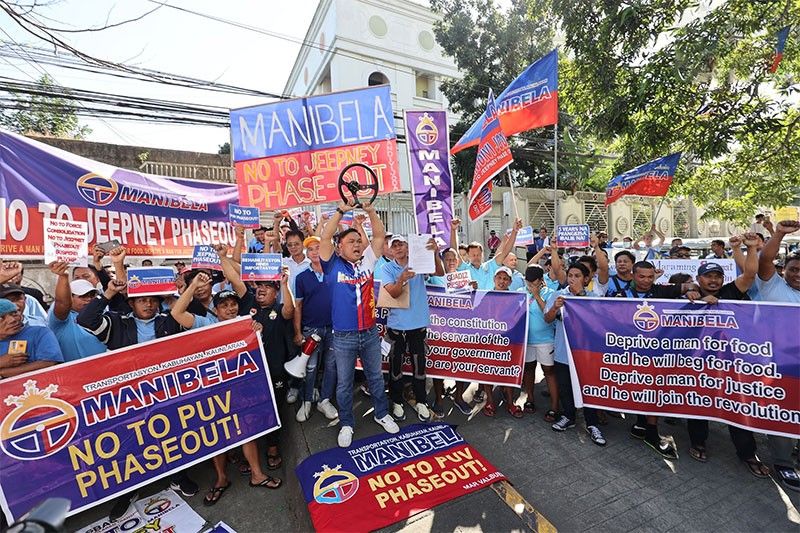House panel slams DOTr over lack of strategy for PUVMP

MANILA, Philippines — The House of Representatives committee on transportation has assailed the Department of Transportation (DOTr) for its failure to resolve various issues surrounding the implementation of the government’s Public Utility Vehicle Modernization Program (PUVMP).
Antipolo City 2nd District Rep. Romeo Acop, who chairs the committee, expressed dismay during the resumption of his panel’s hearing last Thursday over such a failure.
“What’s happening now is we are becoming the band leader that tells you the right things to do. And to tell you frankly, I’m sick and tired of that,” Acop, who earlier likened the PUVMP to a “headless chicken,” said.
He noted that owing to the DOTr’s lack of a “definitive strategy,” the progress of the “gradual route optimization” is currently at a measly 10 percent.
The lawmaker made the statement as transport organizations have repeatedly been raising various concerns, including the implementation of the traditional jeepney phaseout before the DOTr had completed the route rationalization program.
A representative from a transport cooperative in Camarines Sur, for instance, complained that their application for loans for 30 units of buses with the Land Bank of the Philippines had already been approved in 2019.
The LBP, however, did not release their loans after finding that another transport organization was assigned to their route in 2021.
“The release of our units was affected due to multiple juridical entity in a route. Until now, we have not gotten our buses,” the representative complained.
Another issue raised during the hearing was the failure of a transport cooperative to issue receipt for the amortization paid by its members. Instead, the cooperative was recording the payment in a logbook.
For Acop, authorities should have prioritized route rationalization so that they would know how many vehicles would ply a certain route.
“What we did, the government, which we are part of, is we removed jeepney drivers and operators from the road, and we gently forced them to join our organization, whether a cooperative or corporation. We created a layer of authority where abuse is very possible. So it is incumbent on us to see that no abuse is happening,” he said.
- Latest
- Trending































